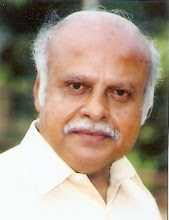[First published in 1992 in German ‘Adult Education & Development’ published from Germany]
“Forests precede civilization, but deserts succeed them”. This is an old French saying. Today we realise the truth of the statement more than anybody else in any other century. For more than a hundred years after the Industrial Revolution, people were not aware of the hazards of industrial development. We believed that progress was possible only through the maximization of technological innovation and the increased exploitation of natural resources. “Industrialise or perish” became the cherished slogan of the people. Factories and industrial units became the symbols of development and progress.
It was the dropping of atom bombs on Japan during the Second World War which set man to think for the first time about the havocs and horrors that Science could bring to mankind. Later the industrial disasters of the 1950’s and 1960’s reaffirmed man’s fear of the hazards of unregulated industrial development.
In 1953 many people at Minamita, a village in Japan, began to suffer from unexplained neurological disorders ranging from paralysis to madness. It took six years to discover that the neurological disorders were caused by mercury waste which had been dumped into the sea since the 1940s by a chemical plant. The mercury found its way into the human body through fish and marine organisms. The dumping continued till 1971 when it was realised that the poisoning was the direct result of the waste dumping. This was a great industrial disaster which claimed many victims. Yet it is only one of the many industrial disasters taking place all over the world.
The industrial disaster of Bhopal in India is perhaps the worst of its kind in the whole history of industrial accidents. The mild wintry night of Bhopal on 2nd December 1984 turned out to be a nightmare of havoc, panic, sickness and death. Thousands of men, women and children tragically lost their lives. Many were doomed to sudden death; many more were doomed to a life of darkness through the loss of eyesight; and very many became destitute. It was all because of the accidental escape of the poisonous Methyle isocyanate from Union Carbide in Bhopal.
The Third World is a late starter in the field of industrialisation and so the Third World nations were very eager to industrialise themselves as fast as possible. In their haste to industrialise they did not pause to think of environmental protection and ecological balance. The Bhopal tragedy shocked us to our senses.
The nuclear accidents of Three Mile Island in the U.S.A and Chernobyl in the former U.S.S.R shocked the world and made us more aware of how destructive nuclear power stations can be.
Once the people became aware of the industrial hazards, they became very conscious and cautious of the problems of pollution. Many voluntary movements such as the Green Movement have established themselves all over the world. Many movements, through mass education, have succeeded in resisting Government decisions to establish highly pollutant industries and huge dams which could produce ecological imbalance.
In the State of Kerala in India, the Government decided to construct a huge dam at Silent Valley for a hydro-electric power project. The construction of the dam would have submerged vast areas of dense rain forest which would have created an ecological imbalance. The organizations and the people concerned about the protection of the environment therefore protested against the Government’s proposal. The Shastra Sahithya Parishat (a non-government organisation engaged in promoting Science education among the common people) led the protest. By means of demonstrations, massive rallies, street threatre and educational programmes, they made the people aware of the dangers of constructing a dam at that site. Thus the public were alerted and protested against the Government and finally the Government had to yield to public pressure and dropped the scheme completely. This is an instance of massive movement organized through mass education for the protection of the environment.
In an age of extensive industrialisation, the protection of the environment is a serious matter of public concern. Environmental studies should therefore become an integral part of the Adult Education Programme.
This does not mean that we have to abandon industrialisation completely. It only means that we have to be more cautious. The poet William Cowper once said, “Man made the Town and God made the Country”. Those who are fed up with city life would naturally and nostalgically long for de-urbanization and afforestation. The quality of life in a rural area is much better than that in a highly polluted and crowded industrial city. E.F.Schumacher says, “The pressure and strain of living is very much less in, say, Burma than it is in the United States. In spite of the fact that the amount of labour saving machinery used in the former country is only a minute fraction of the amount used in the latter.” But a critic of the poet Cowper said that if the poet has been lost in the wilderness of the dark jungles of Africa, he would have fervently longed for the man-made towns. So we cannot do away with Science and Technology. We have to strike a balance. We thus have to educate the common people about the hazards of unregulated industrial expansion by multi-national investors for the well-being of the people. Any concept of development should be man-oriented, promoting the healthy conditions of life and the well-being of the people. Any concept of development should be man-oriented, promoting the healthy conditions of life and the well-being of the people at large. The adult educators engaged in human resource development have to carry this message to the common people and thereby alert people against any environmental hazards.
Monday, December 21, 2009
Subscribe to:
Post Comments (Atom)

No comments:
Post a Comment